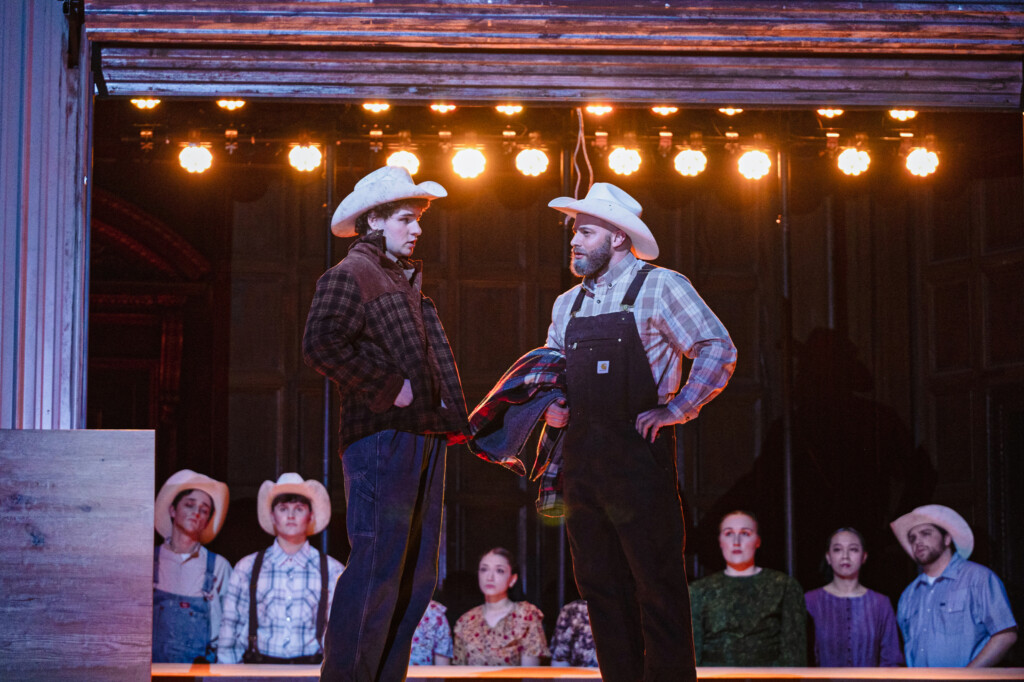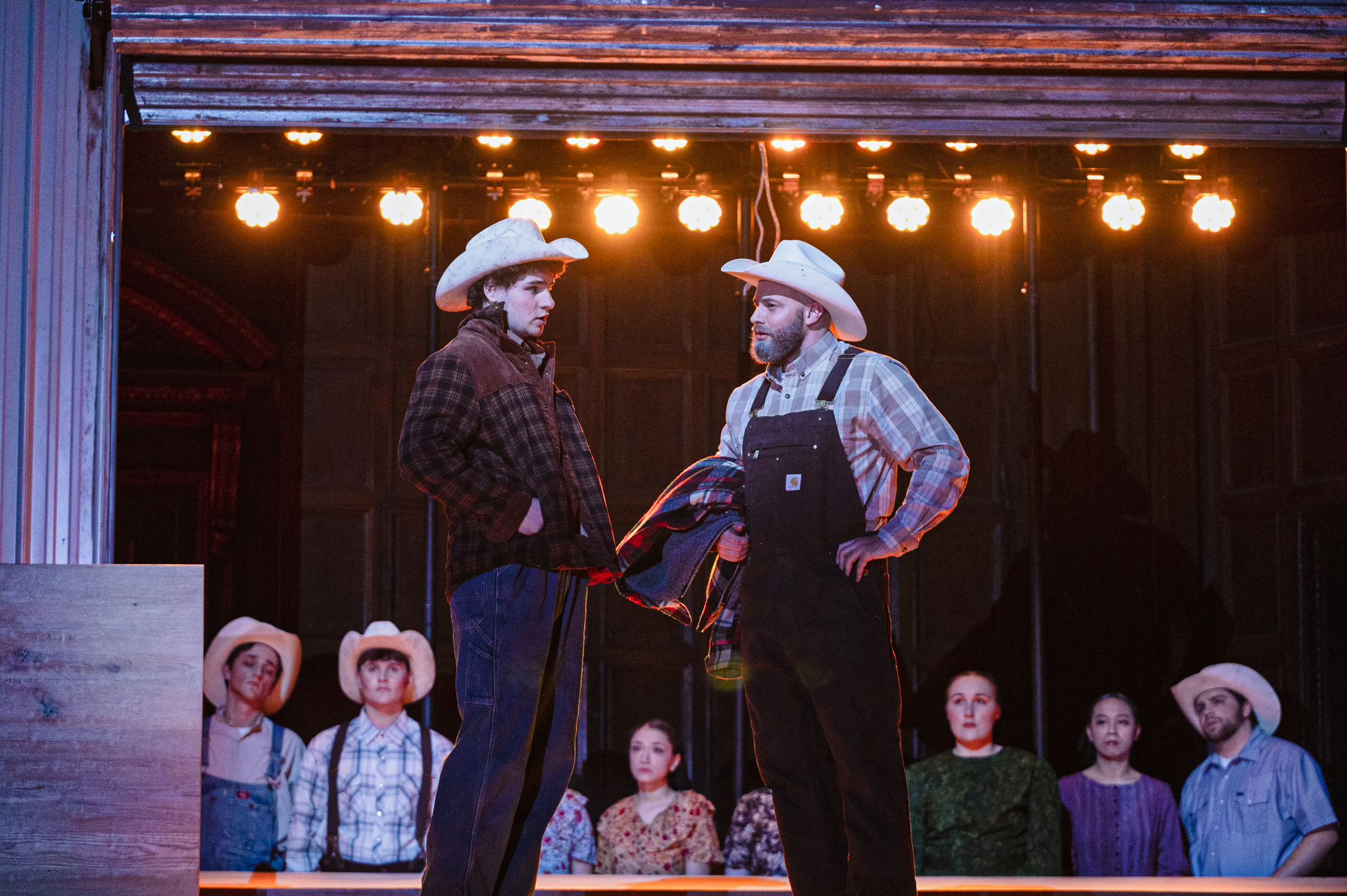A matrimonial crisis of faith is no stranger to an opera, but what happens when both relationships are genuine? Eastman Opera Theatre’s production of “Silent Light” weighs the importance of familial and societal expectations versus the pursuit of true love in a story that is sure to leave you pondering.
Having had its world premiere in September, “Silent Light” brightens the stage in Kilbourn Hall with its dissonant score and impressive special effects, including many projections and recorded sound effects. These elements elevate the production from a traditional opera so much that music director Professor Timothy Long simply refers to it as a “happening.”
“It’s so far beyond what a formal opera is,” Long explained. “There will always be something that will draw your attention.”
“Silent Light” spares no expense to create sensory scenery, and uses Foley to create many of the sound effects heard throughout the show. A technique mainly used in movie production, Foley live creates sound effects in correlation with what the actors are doing on the stage. If you hear the sound of the characters’ footsteps satisfyingly crunching in the snow, direct your attention to the orchestra pit, where Eastman student Luke Honeck crunches a bag of cornstarch into a microphone in time with their steps.
The story itself takes place within a Mennonite community in Northern Mexico, where emotions are not often outwardly expressed. The vivid soundscape within the score of the opera and the Foley allow for the characters’ emotions to be apparent, even in reservation.
Mirroring the characters’ sparse use of language, the music in the opera uses silence to motivate the emotion in the score, leaving room for the actors to meditate on the intentions of their characters.
“I think when you have so much silence, it makes the singing that much more important when it happens,” Long said. Following the culture of a Mennonite community, the characters explore their connections by looks and movement, allowing the actors to explore their natural chemistry and the unique challenge of communicating without words.
As the audience observes the characters in their daily life, the audience must learn what they are thinking through their mannerisms and tasks. There are many moments throughout the opera where a character is sitting at a table while the music builds to mimic his inner conflict, or we watch two characters meet up in the woods and have a whole conversation with only looks. Silence tells all in this piece, despite our urge to fill it. Because there is so much unsaid, spoken words hold a greater significance.
And this urge to fill the silence is, to Long, distinctly American. “Most Americans want to fill in silence, because I think we have a culture where silence makes people uncomfortable, especially in the majority culture, and I always wonder why,” Long said. “I learn more about people in silence, kind of like the opera. Because if you’re comfortable with silence […] you only speak when something really means something to you.”
In an opera about familial peace versus true love, both intense love and inner contention must be present for the story to be motivated and believable. Because this opera is new to the world, not much is known about the plot. When so much of the opera industry relies on productions of classic shows where the story is expected, “Silent Light” has the unique opportunity to bring something new to the table. Its impact is fresh, and the audience gets the rare opportunity to interpret the story for themselves, not watch through someone else’s eyes.
“Something like ‘Silent Light,’ because we’ve never seen it before, and because we haven’t heard this musical language before, allows us to actually see the situation for what it is. It’s so fresh, and it hasn’t had the chance to be stigmatized yet,” Long said.
As the characters are observed in the story, you can’t help but feel the constant presence of time. There is an ever-present subtext of their actions’ permanence, leaving observers with an impending feeling of dread. Even the orchestra cannot escape the clock, as the opera uses its ticking as a sort of metronome.
As stage director Professor Patrick Diamond explained, “I think that in the end, you can do anything, you can get anything, but you can never go back and change what has already happened. And that is something that no matter what your religious beliefs are, no matter what you’re feeling in a given moment, that you have to be aware of.”
As the pieces of the story begin to collide, we are left with one final message: “The only thing we cannot do is turn back time.”


